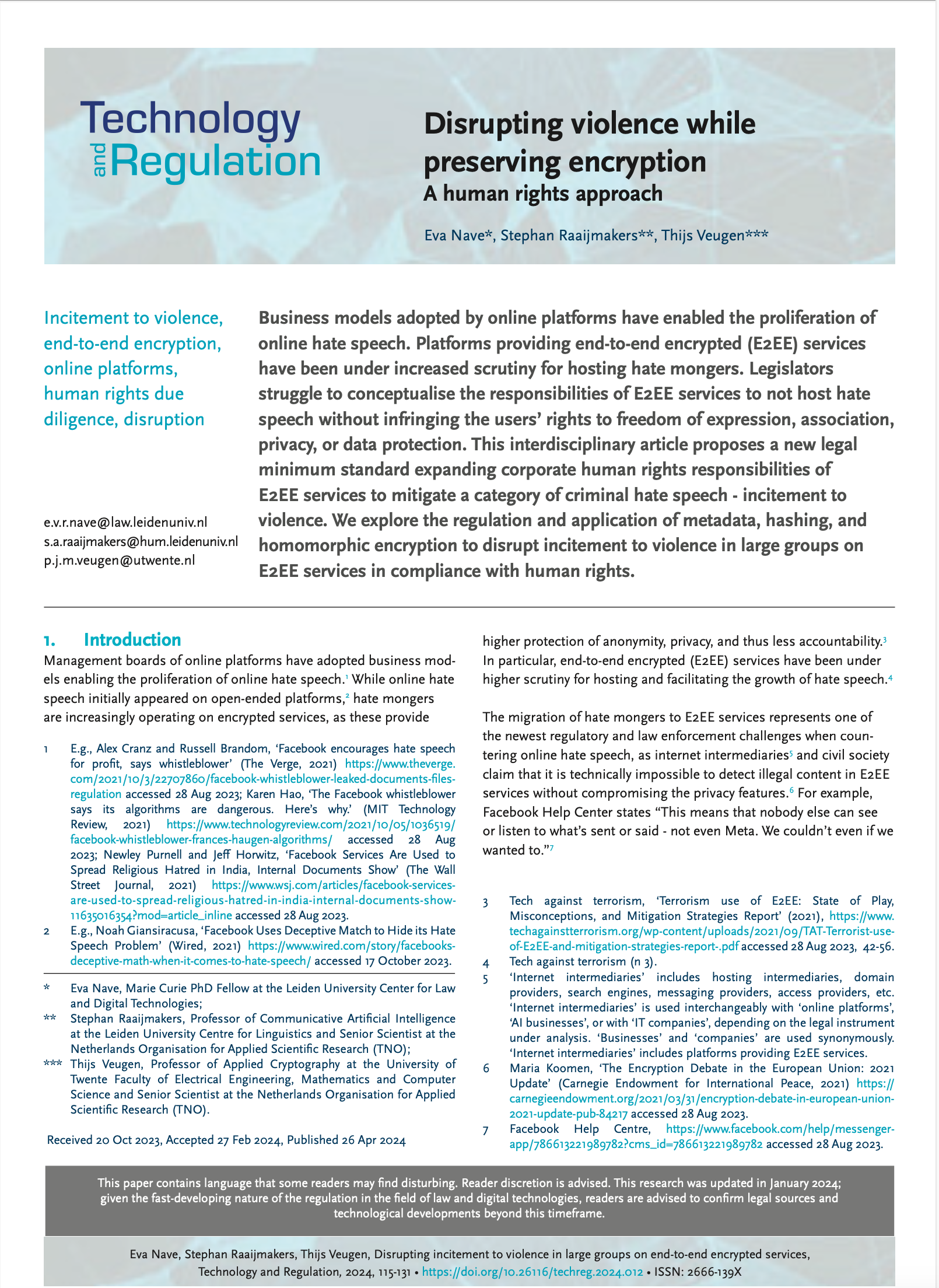Disrupting violence while preserving encryption
A human rights approach
DOI:
https://doi.org/10.71265/5kzhv673Keywords:
Incitement to violence, end-to-end encryption, human rights due diligence, disruptionAbstract
Business models adopted by online platforms have enabled the proliferation of online hate speech. Platforms providing end-to-end encrypted (E2EE) services have been under increased scrutiny for hosting hate mongers. Legislators struggle to conceptualise the responsibilities of E2EE services to not host hate speech without infringing the users’ rights to freedom of expression, association, privacy, or data protection. This interdisciplinary article proposes a new legal minimum standard expanding corporate human rights responsibilities of E2EE services to mitigate a category of criminal hate speech - incitement to violence. We explore the regulation and application of metadata, hashing, and homomorphic encryption to disrupt incitement to violence in large groups on E2EE services in compliance with human rights.
Downloads

Downloads
Published
Issue
Section
License
Copyright (c) 2024 Eva Nave, Stephan Raaijmakers, Thijs Veugen

This work is licensed under a Creative Commons Attribution-NonCommercial-NoDerivatives 4.0 International License.
How to Cite
Funding data
-
H2020 Marie Skłodowska-Curie Actions
Grant numbers 861047






